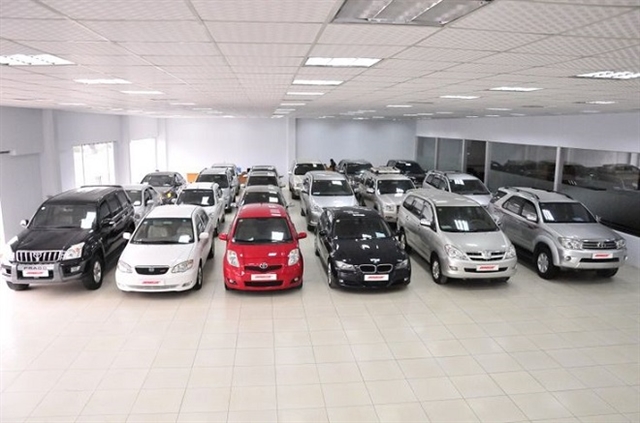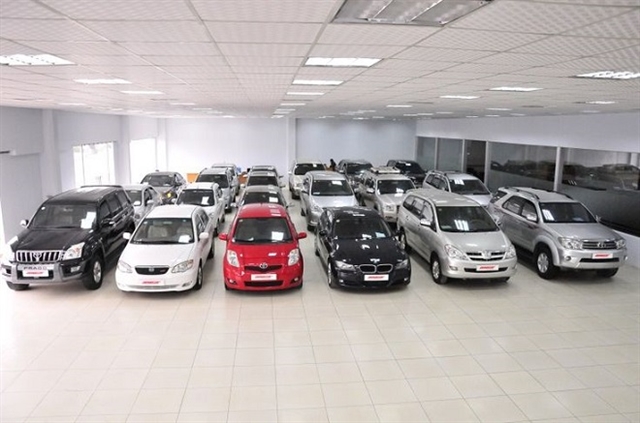
|
| Our showroom in Long Bien District, Hanoi has new and used cars for sale. — Photo courtesy: Anycar.vn |
HANOI — Vietnam’s recent decline in car consumption and fall to fifth place in Southeast Asia can be attributed to both external and internal factors, auto experts said.
According to the Association of Southeast Asian Automobile Manufacturers (AAF), Indonesia topped the list in car sales in the first half of this year with 505,000 units, an increase of 6.3% from the same period last year. Thailand came in second place with a 5% decrease in sales to 406,000 units, followed by Malaysia in third place with a 10.3% increase in sales to 366,000 units. In particular, the Philippines rose from 5th to 4th place, with 202,415 cars sold, a significant increase of 30.7%. On the other hand, Vietnam fell to 5th place with 137,327 units, a significant decrease of 32% compared to the same period last year.
External factors such as the Russia-Ukraine conflict and global inflation, along with other adverse developments, are impacting Vietnam’s car consumption, according to industry sources. These factors affected consumer confidence and purchasing power, leading to a decline in car sales.
Domestic automobile sales in August decreased by about 27% from the previous year to 22,540 units as consumers continued to tighten their spending amid economic difficulties. Sales in August were lower than in June and July.
Vietnam is facing challenges in economic and market conditions that have contributed to the decline in car consumption. Compared to some Southeast Asian countries, Vietnam’s economy is still developing, and its people’s standard of living and purchasing power may not be as high.
Phạm Cường, chairman of the Vietnam Motorcycle and Bicycle Association (Vamaba), said car prices in Vietnam are relatively high compared to other countries in the region and the pricing policy is considered unstable. This price difference, in addition to limited car choice, can impact consumer preferences and ability to purchase a car.
Dao Cong Quet of the Vietnam Automobile Manufacturers Association (VAMA) pointed out that Vietnam was affected by the COVID-19 pandemic later than other Southeast Asian countries, which delayed its recovery. As a result, it may take more time for general goods consumption, including automobiles, to show signs of improvement in Vietnam.
Other factors contributing to the decline in car consumption in Vietnam include high bank interest rates and liquidity issues in the real estate market. Couet added that these factors can affect consumers’ financial ability and willingness to invest in big-ticket items such as cars.
Automobile expert Nguyen Minh Dong said car prices in Southeast Asian countries are 30 to 40 percent cheaper than in Vietnam. On the other hand, Vietnam’s pricing policy is not stable. The car markets in these countries have more car models, so consumers have more choices. Dong said special consumption tax and some vehicle fees should be waived or reduced to create an incentive for more people to buy cars.
Trần Thanh Tùng, director of business administration at Ho Chi Minh City University of Economics and Finance, said it is worth noting that the decline in car sales in Vietnam is not necessarily seen as a bad sign. Some experts believe this reflects cautious spending amid slower economic growth and higher financing costs. Additionally, it will help reduce the strain on the country’s road infrastructure, which is already burdened by a large number of private vehicles.
To address the decline in car consumption, experts are proposing measures such as reducing special consumption taxes and fees on cars, offering more car choices, and considering car loan policies in other countries in the region. . These measures are aimed at creating better conditions for consumers and stimulating the market. —VNS
